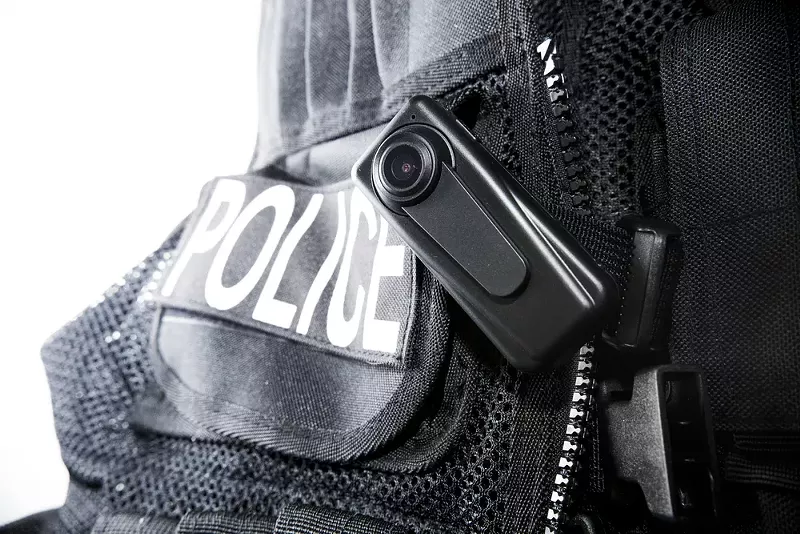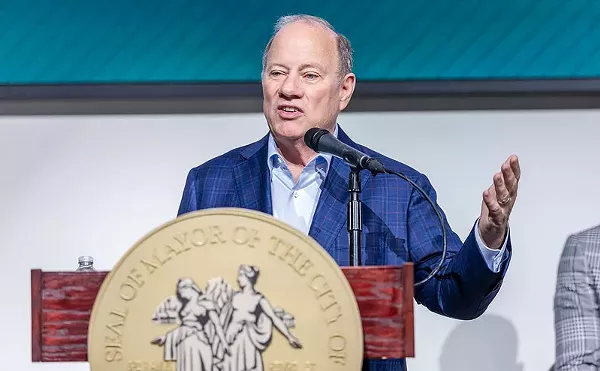
Audio By Carbonatix
[
{
"name": "GPT - Leaderboard - Inline - Content",
"component": "35519556",
"insertPoint": "5th",
"startingPoint": "3",
"requiredCountToDisplay": "3",
"maxInsertions": 100,
"adList": [
{
"adPreset": "LeaderboardInline"
}
]
}
]

Skyward Kick Productions / Shutterstock
Last year, Detroit launched a $5.2 million experiment to outfit the city's police officers with body cameras. And so far, the results demonstrate that there are two sides to every story.
A look by the Detroit News into the first six months of the program found that the cameras helped prove 30 complaints against police officers. That's 133 of 439 non-criminal complaints filed with the Office of the Chief Investigator received 439 noncriminal complaints against police officers. On the flip side of that, officers were exonerated by audio and video captured by the body cams in 109 claims. About 200 of the allegations recorded, meanwhile, were unfounded.
The Detroit Police Department has been allocated 1,500 body cameras that are currently being used by all of the department's officers. However, body cameras are only as good as the police officers behind them.
In order to as accurate as possible, Detroit Police officers must be responsible for ensuring that their body cameras are recording. Even during routine traffic stops police must initiate the cameras and should immediately notify citizens when they're being recorded. According to the policy draft that was submitted in March of 2017, police are not required to stop recording at the behest of the individual while in a public space. However, if the interaction between the police and the citizen are private, for example, in the home of the citizen, then police officers are not permitted to record unless they have already obtained a search warrant except in instances where "exigent circumstances exist."
One overlooked aspect of the body camera experiment, however, has been video storage. Because all video recorded by the body cameras are required to be archived, digital and physical storage takes up a large amount of space.
In a statement to The Detroit News, Assistant Chief James White explained the current storage obstacle.
"We're looking at storing the footage on Blu-ray — but then you need somewhere to store the discs. We didn't anticipate how much space was going to be needed."One overlooked aspect of the body camera experiment, however, has been video storage. Because all video recorded by the body cameras are required to be archived, digital and physical storage takes up a large amount of space.
In a statement to The Detroit News, Assistant Chief James White explained the current storage obstacle.
In 2015, the Justice Department awarded $23 million in funding to law enforcement agencies in 32 states to support body camera pilot programs. That same year, Mayor Mike Duggan original announced the city's plans to outfit police officers with body cameras.
Stay on top of Detroit news and views. Sign up for our weekly issue newsletter delivered each Wednesday.





